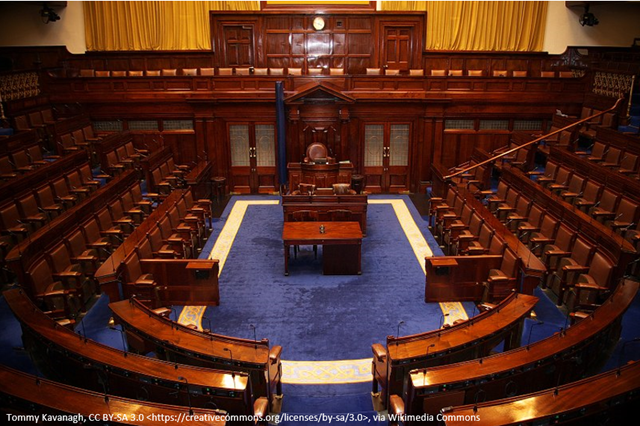
Date: 18 Oct 2021
A comparative assessment of the Climate Action and Low Carbon Development (Amendment) Act 2021
A study recently carried out by Dr. Diarmuid Torney at the DCU Centre for Climate & Society, commissioned by the Friends of the Earth, looks at how Ireland performs with climate law relative to our European counterparts. This study assesses the amended Climate Action and Low Carbon Development Act 2021 under eight core headings. Dr. Torney analysis concluded that Ireland is in a good position, albeit some shortfalls, compared to international best practice with respect to climate action.
The full report can be viewed HERE
The key findings of the assessment are as follows:
Long-term targets
The 2021 Act builds strongly upon the 2015 Act by adding a specific decarbonisation target of climate neutrality by 2050 at the latest, alongside the importance of protecting biodiversity. This aligns Ireland’s vision with the EU responsibililty to climate neutrality by 2050.
Intermediate targets
The 2021 Act strengthens its intermediate targets relative to the 2015 Act. It develops a system of carbon budgeting and makes a case for the setting of the first two budgets at a level consistent with the Programme for Government (PfG) commitment to reduce greenhouse gas (GHG) emissions by 51% over the next decade. The amendments bring Ireland’s legislative framework broadly into line with international best practice and provide for a level of decarbonisation that is extremely ambitious by international standards. However, there are shortcomings in the language describing how sectoral targets are to be set and ministers’ duty to obey.
Arrangements for policy planning
The Amended Act reinforces provisions for climate mitigation policy planning. The requirement to produce an annually updated Climate Action Plan has been placed on a statutory footing, and a requirement to produce a Long -Term Strategy every five years has effectively replaced the 2015 Act to produce a National Mitigation Plan. Both the Climate Action Plan and the 5-year Strategy are required to be consistent with the carbon budget programme as well as the state’s EU and international obligations. There is minimal change to adaptation policy planning. These changes position the Irish legislative framework towards the front of the pack in international rankings.
Incorporation of expert advice
Government’s Climate Act 2021 broadens the role of the Climate Change Advisory Council (CCAC) as both an advisor and a listener. The Council has been given a strong advisory role in the setting of carbon budgets, and by extension will play a stronger watchdog role in monitoring compliance with those budgets. In comparison with other jurisdictions, however, the CCAC remains an outlier regarding its composition, undermining its perceived resourcing and independence. These concerns remain unaddressed in the 2021 Act.
Public participation
The 2021 Act offers little to change for public participation in national climate policy planning, though such provisions are stronger in respect of the preparation of local authority climate action plans. The Irish legislative approach is broadly in line with other jurisdictions, as most framework climate laws do not contain strong provisions for public participation.
Institutional arrangements and responsibilities
This category under the 2021 Act represents a progression on the 2015 Act, but still lacks transparency. Coordination methods are strongly insufficient from the Act itself but have been significantly strengthened in recent years on a non-legislative basis. The provisions regarding responsibilities of local government have massively improved. International practice in respect of institutional arrangements varies proving international benchmarking on this dimension challenging to undertake.
Progress monitoring and reporting
The Climate Action and Low Carbon Development Act progress monitoring and reporting. Reporting by the CCAC is strengthened by the fact that it must now report on progress against the national climate objective and the carbon budgets. These changes bring the Irish legislative framework broadly into line with international best practice.
Enforcement and sanctions
The 2021 Act creates a range of new requirements on government, creating new opportunities for accountability. It does not include explicit provisions for sanctioning and enforcement in the case of failure to meet GHG reduction targets. The absence of explicit provisions for sanctioning and enforcement is a common feature with respect to climate law internationally. In conclusion, Ireland is broadly consistent with international practice in this regard.
An area falling short in this study is the independence and resourcing of the Climate Change Advisory Council. The role of agencies such as Teagasc are unknown and will require discussion as the Council passes on its recommendations to Government regarding Irelands carbon budgets in the coming weeks.
The Climate Action and Low Carbon Development Act 2021 has both its benefits and shortcomings, but serves as only a small piece in the puzzle for Ireland long term strategy for climate action.